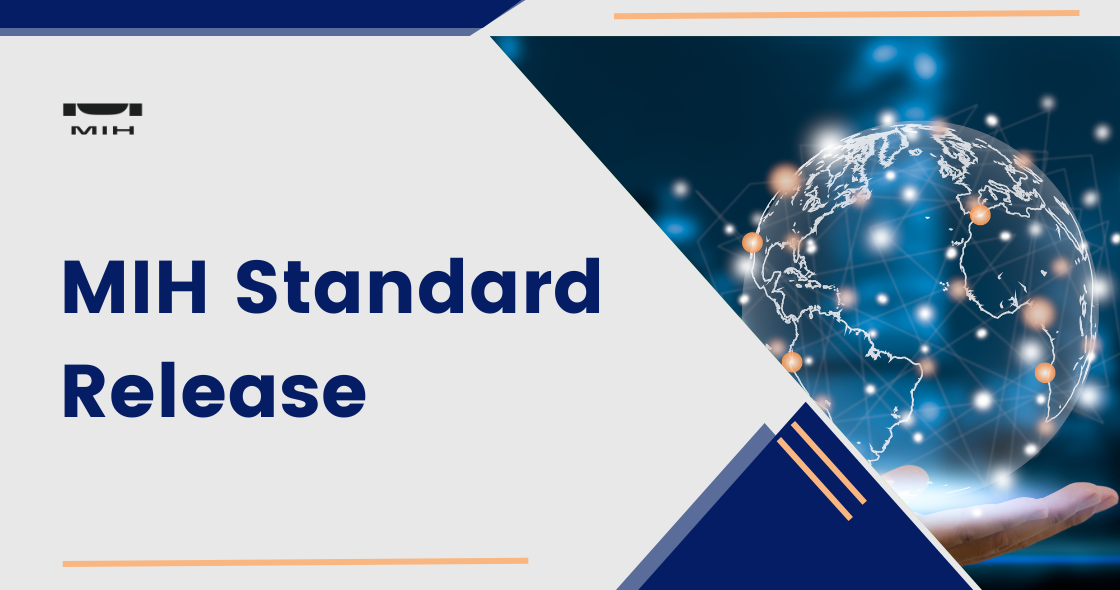MIH Recommended Smart Cabin API Standard V1.0
The MIH Consortium is pleased to announce the release of the Smart Cabin API Standard V1.0. This standard provides unified specifications for Hardware Abstraction Layer (HAL) interfaces, helping to realize the vision of Software-Defined Vehicle (SDV). It aims to assist supply chain partners and OEMs in simplifying hardware interfaces, supporting modular design, and adapting to various supplier needs, thereby shortening development time, improving quality, reducing costs, and enhancing overall competitiveness. The needs of the suppliers, OEMs, and end users are as follows:
Suppliers: Reduce development costs and enhance adaptability to different vehicles and market needs.
Vehicle OEMs: Need solutions that are highly competitive, flexibly integrated, and capable of deploying the latest technologies and features.
End-user: Desire seamless control and immersive experiences to enhance the entertainment and safety of the cabin environment.
👉 You can find the document here: Smart Cabin API Standard Ver 1.0
👉 Fill out the survey and provide your feedback
Hardware Abstraction: APIs provide a hardware abstraction layer for various field devices on vehicles, enabling easier access and control of these devices. This abstraction ensures portability across different platforms, thereby enhancing development efficiency and maintainability.
Cross-Platform Agnostic: Different areas of control are integrated into the API, ensuring compatibility across various models and manufacturers. This means developers can use the same API interface across multiple platforms without modification.
Streamline the Development Process: Integrating controls from different areas can significantly simplify the development process. Developers can use the same API interface to access seats, windows, HVAC (Heating, Ventilation, Air-conditioning & Cooling) systems, doors, etc., without the need to modify and manage multiple APIs or interfaces.
API Projects:
Body: The body refers to the outer shell of the vehicle, including the front, rear, sides, and the components within these parts, such as turn signals and speedometers.
ADAS: ADAS is vehicle technology designed to improve driving safety and includes a series of electronic systems and sensors that help drivers avoid collisions. ADAS technology is becoming increasingly popular in modern cars, enhancing the driving experience and reducing the risk of traffic accidents.
Steering Wheel: The steering wheel system integrates various advanced technologies and functions, including integrated control and behavior monitoring, to provide drivers with a more convenient and intelligent driving experience.
Seat: The purpose of adjusting vehicle seats is to ensure that the driver or passengers sit comfortably and safely while operating or riding in the vehicle. Adjusting the seat allows people to achieve a comfortable driving or riding position while ensuring they have a clear view of the road or surroundings.
HVAC: HVAC control systems are designed to maintain a comfortable temperature inside the vehicle under different weather conditions, providing passengers with better comfort and a superior driving experience.
Door: Car doors are equipped with advanced features to enhance safety and convenience, making it easier for passengers to enter and exit.
Display: Vehicle display systems provide drivers and passengers with information about vehicle performance, settings, and infotainment, as well as access to advanced features such as entertainment, navigation, and personalized control surfaces.
Audio: Vehicle audio systems can become part of the overall entertainment experience, improving in-car comfort and making every driving experience more enjoyable.
Mirror: Car mirrors include rearview mirrors and side-view mirrors, allowing the driver to observe the traffic behind them. They enable drivers to see other vehicles, pedestrians, and cyclists, making it easier to change lanes, overtake, and park. Rearview mirrors play a vital role in driving safety, helping drivers make informed decisions and reduce the risk of accidents.
Window: Car windows provide visibility and ventilation while offering sound insulation, heat insulation, and waterproof functions. They are now also equipped with advanced features such as smart lift and display to provide passengers with greater comfort and convenience.
Connectivity: Connectivity links a vehicle to the outside and enables data transmission. It allows drivers to use mobile apps or other services such as media streaming and OTA updates.
Interior Monitoring System (IMS): IMS can monitor the driver's status in real time and warn the driver of conditions such as lack of attention or fatigue, thereby improving driving safety.
Light Lighting: Lighting installed on vehicles not only improves the safety of driving at night but also enhances the aesthetics and personalization of the vehicle.
Through the standardization of Smart Cabin, API will add or modify projects in various fields based on technological developments to support vehicle design needs in various fields. These standardization efforts are intended to promote the overall consistency and scalability of Smart Cabin architectures.
👉 The standard document here: Smart Cabin API Standard Ver 1.0
👉 Tell us your suggestions by filling out the survey

MIH Consortium
2024-08-30

MIH Consortium
2024-08-30

MIH Consortium
2024-08-30